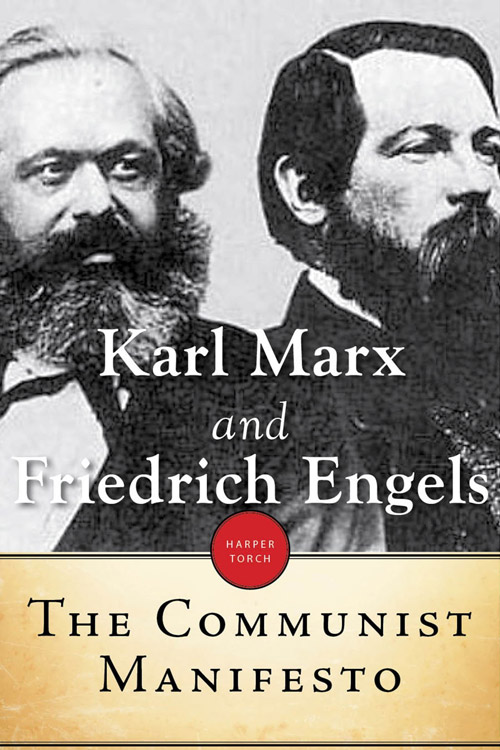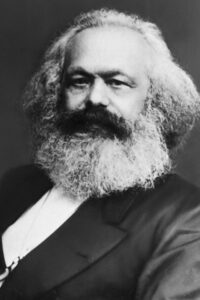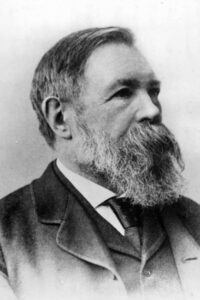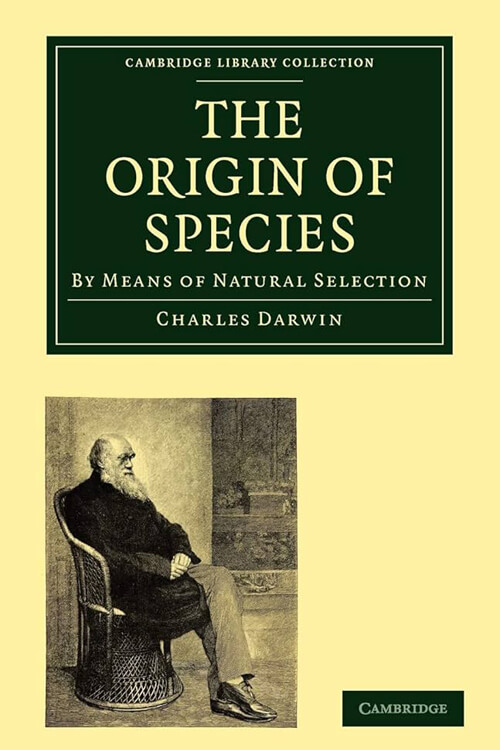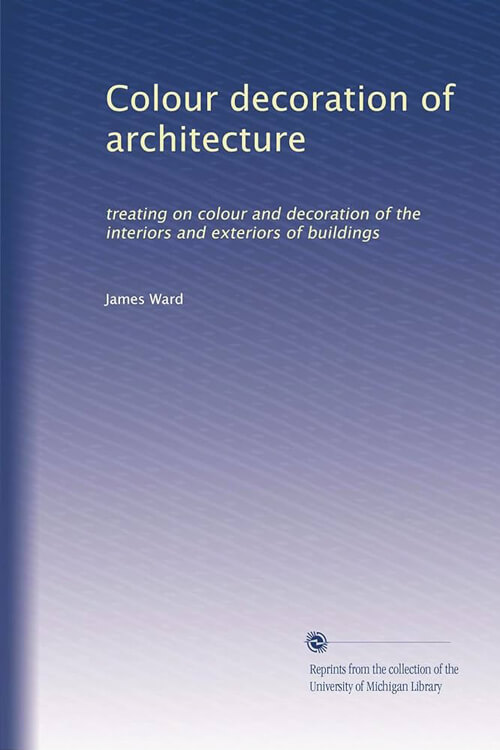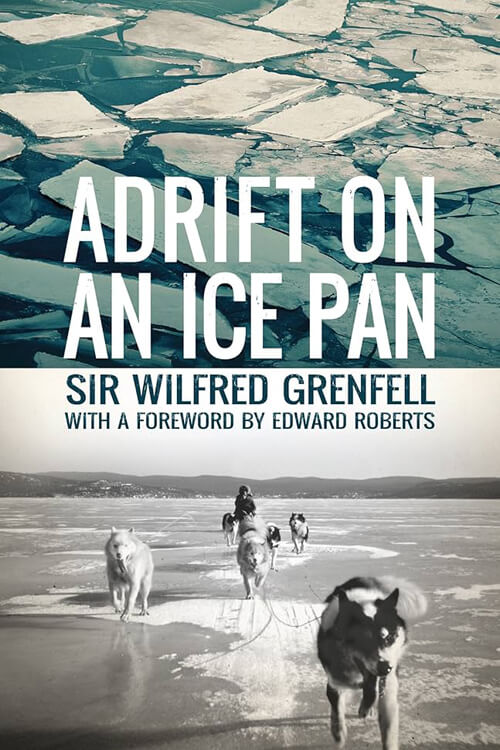
The Communist Manifesto
The feudal system of industry, under which industrial production was monopolized by closed guilds, now no longer sufficed for the growing wants of the new markets. The manufacturing system took its place. The guild masters were pushed to one side by the manufacturing middle class; the division of labour between the different corporate guilds vanished in the face of the division of labour in every workshop.
In the meantime, the markets kept growing, and the demand was ever-rising. Even manufacture no longer sufficed. Thereupon, steam and machinery revolutionized industrial production. The giant, Modern Industry, the place of the industrial middle class, by industrial millionaires, the leaders of whole industrial armies, and the modern bourgeois took the place of manufacture. Modern industry has established the world market, for which the discovery of America paved the way. This market has given immense development to commerce, navigation, and communication by land.
This development has, in its time, reacted to the extension of industry, and in proportion as industry, commerce, navigation, and railways extended, in the same proportion, the bourgeoisie developed, increased its capital, and pushed into the background every class handed down from the Middle Ages. We see, therefore, how the modern bourgeoisie is itself the product of a long course of development, of a series of revolutions in the modes of production and of exchange. A corresponding political advance of that class accompanied each step in the bourgeoisie’s development.
Read or download Book
Karl Marx, Frederick Engels
Karl Marx (5 May 1818 – 14 March 1883) was a German-born philosopher, economist, political theorist, historian, sociologist, journalist, and revolutionary socialist.
Biography.
His best-known works are the 1848 pamphlet The Communist Manifesto (with Friedrich Engels) and the three-volume Das Kapital (1867–1894); the latter employs his critical approach of historical materialism to analyse capitalism and represents his most remarkable intellectual achievement. Marx’s ideas and theories and their subsequent development, collectively known as Marxism, have enormously influenced modern intellectual, economic, and political history. Born in Trier in the Kingdom of Prussia, Marx studied at the universities of Bonn, Berlin, and Jena and received a doctorate in philosophy from the latter in 1841. A Young Hegelian, he was influenced by the philosophy of Georg Wilhelm Friedrich Hegel and critiqued and developed Hegel’s ideas in works such as The German Ideology (1846) and the Grundrisse (1857–1858). While in Paris in 1844, Marx wrote his Economic and Philosophic Manuscripts and met Engels, a lifelong friend and collaborator. After moving to Brussels in 1845, they were active in the Communist League, and in 1848 wrote The Communist Manifesto, which expresses Marx’s ideas and lays out a program for revolution.
Marx was expelled from Belgium and Germany and, in 1849, moved to London, where he wrote The Eighteenth Brumaire of Louis Bonaparte (1852) and Das Kapital. In 1864, Marx helped found the International Workingmen’s Association (First International), where he sought to fight the influence of anarchists led by Mikhail Bakunin. In his Critique of the Gotha Programme (1875), Marx wrote on revolution, the state, and the transition to communism. He died stateless in 1883 and was buried in Highgate Cemetery. Marx’s critiques of history, society, and political economy hold that human societies develop through class conflict. The capitalist mode of production manifests itself in the conflict between the ruling classes (known as the bourgeoisie) that control the means of production and the working classes (known as the proletariat) that enable these means by selling their labour power in return for wages. Employing his historical materialist approach, Marx predicted that capitalism produced internal tensions like previous socioeconomic systems and would lead to its self-destruction and replacement by a new socialist mode of production. For Marx, class antagonisms under capitalism—partly due to its instability and crisis-prone nature—would eventuate the working class’s development of class consciousness, leading to their conquest of political power and eventually the establishment of a classless, communist society constituted by a free association of producers. Marx actively pressed for its implementation, arguing that the working class should organise proletarian revolutionary action to topple capitalism and bring about socio-economic emancipation.
Friedrich Engels (28 November 1820 – 5 August 1895) was a German philosopher, political theorist, historian, journalist, and revolutionary socialist.
Biography.
He was also a businessman and Karl Marx’s closest friend and collaborator. Engels’s family was wealthy and owned large cotton textile mills in Prussia and England. He met Marx in 1844, and they jointly authored several works, including The Holy Family (1844), The German Ideology (written 1846), and The Communist Manifesto (1848). They worked as political organizers and activists in the Communist League and First International. Engels also helped Marx financially, allowing him to continue writing after moving to London in 1849. After Marx died in 1883, Engels compiled Volumes II and III of Das Kapital (1885 and 1894), helped found the Second International, and was the leading authority on Marxism.
Engels also wrote wide-ranging works, including The Condition of the Working Class in England (1845), Anti-Dühring (1878), Dialectics of Nature (1878–1882), The Origin of the Family, Private Property and the State (1884), and Ludwig Feuerbach and the End of Classical German Philosophy (1886). His philosophical writings on materialism, idealism, and dialectics gave Marxism an ontological and metaphysical foundation.

